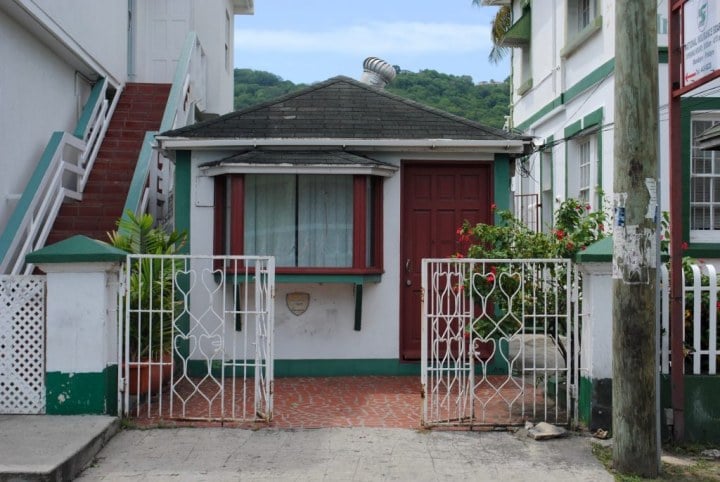
You may have heard of the minimalist movement. Nowadays, minimalism has become popular, especially among millennials. Minimalists are people opting to live with less stuff, and to go with smaller rather than larger possessions. With less stuff, they say, comes less worry, less guilt, and more freedom. Some individuals and families are taking this to another level with the “tiny house” trend. Here are pros and cons of tiny houses.
FAQ About Tiny Houses
So what is a tiny house? Whereas the average American home is around 2,600 square feet, a typical tiny house is 400 square feet or less.
Why live in such a small space? There are many reasons, but the most common are environmental concerns, financial reasons, and a quest for more freedom.
How does a tiny house give more freedom? For most Americans, one-third or more of their income goes to their home. Buying a house usually results in spending the next 15 to 30 years of your life paying it down. And that doesn’t include the associated costs of maintenance, utilities, taxes, and insurance. It’s no wonder three-quarters of people are living paycheck-to-paycheck.
Owning a modern house also involves a lot of work. There’s a lawn to mow, trees to trim, gutters to clean, decks to paint, and windows to wash. Many people are tired of spending their days at work and then coming home to work on the house.
But living in a tiny house obviously isn’t for everyone. Before you take that flat screen TV off the wall and bring it to Goodwill, you should take a close look at what tiny houses are like and consider the pros and cons of the tiny house life.
PRO: It Costs Less (Much Less)
A typical tiny house costs between $10,000 and $40,000 to purchase. That may be why 68 percent of tiny house residents have no mortgage, and 89% have less credit card debt than the average American. The recurring costs are also low, less than $1000 per month. One tiny house owner reported spending $166 per month.
Additionally, it costs relatively little to furnish and decorate your tiny house. Even if you want to repaint or renovate the entire house, you’ll spend much less than a comparable project for a conventional home, and spend less time.
CON: You Have to Buy And Cook Stuff More Often
When evaluating the pros and cons of tiny houses, consider that whereas a conventional house usually has plenty of closet and pantry space for clothes, groceries, and household supplies, with only a few hundred square feet a tiny house has little storage space. So you don’t get the benefits of stocking up and buying items in bulk. You can’t buy big cartons of toilet paper at CostCo because there’s no place at home to store them. This becomes even more of an issue considering most tiny houses are located in remote areas, a good distance from the nearest supermarket.
Additionally, you can’t make all the meals for the week on Sunday and store them. The refrigerator and freezer in a tiny house don’t offer much storage. So you have to cook almost every day. Or eat out. Even then, you shouldn’t plan on bringing home too many leftovers.
PRO: You Clean Faster
A family in a typical house can spend a couple of hours cleaning each weekend, with dusting, vacuuming, and mopping. With a tiny house, on the other hand, each cleaning session takes half an hour or less, including sorting laundry and washing dishes. This means you’re done sooner with your household chores.
CON: You Clean More Often
With a regular home there are high traffic areas that need frequent cleaning and other areas that can be cleaned less often. In a tiny house, everywhere is a high traffic area. And even a small mess in one place makes the entire house look chaotic. So you spend less time cleaning, but have to clean more often than in a conventional house.
PRO: Your Home Is Portable
Don’t like your neighborhood? With a conventional house, your option is to sell your home and move to another one elsewhere. That’s a huge hassle and expense. A tiny house, on the other hand, can be built to be portable. You can have your house moved to another location as long as there are utility connections. Many tiny houses have the features of an RV, so you can even take road trips without leaving home. Some tiny house owners use steel beams and siding which are lighter and stronger than wood, so they are easier to tow on a highway.
CON: Not All Jurisdictions Allow Tiny Homes
Not all towns consider tiny houses to be RVs, and therefore do not allow them to stay in RV parks. Furthermore, many towns do not even allow tiny houses, since they specify a minimum size for residential homes. Some tiny house owners get around this by building a conventional house and renting it out, and then parking their tiny house on the property and calling it an add-on or a vehicle.
PRO: Less Monthly Costs
As mentioned previously, living in a tiny house costs much less than a regular house. Utilities, for example, cost one-fifth as much as in a conventional home. House payments and maintenance are also much less. To many people, this is a large factor to include in the pros and cons of tiny houses.
CON: Hard to Get Financing
If you can’t build or buy a tiny house for cash, getting financing can be harder than for a conventional home. Many banks won’t give a standard mortgage loan, because they don’t consider a tiny house to be suitable collateral. Many people have to rely on personal loans or friends and relatives.
PRO: More Environmentally Friendly
If you’re concerned about the environment, then you should know a tiny house has a much smaller environmental footprint than a conventional home. With less space to heat and cool, it uses one-fourth as much energy as a regular house or less. Many tiny houses are solar-ready, so your home can be even more green with solar energy.
CON: Less Living Space
Here we get to the most obvious drawback of tiny houses. You typically don’t get full-sized appliances or fixtures like a regular home. The combo washer/dryer that fits in the home may not dry effectively, so you may be reduced to hanging clothes out back to dry fully. You may not have a full-sized bathtub or kitchen sink, or an elongated toilet.
Tiny houses offer more freedom and less expenses. But are they right for you. You might research and hear the experiences of tiny house owners when deciding whether a tiny house is in your future.
Finding Help with Moving Professionals
We hope you found this blog post on Tiny Houses: Is One Right For You? Pros And Cons, useful. Be sure to check out our post on How to Manage the Lack of Space in the Small-Scaled House? for more great tips!
Need to Move Furniture? With All Around Moving you don’t need to worry about any unexpected charges. We are always upfront about our prices and take pride in taking care of every need of our customers before and during the move. For a stress-free move where you don’t need to take care of anything contact us today! We are “A+” rated members of the Better Business Bureau and a member of Greater New York and Miami Dade Chambers of Commerce.
Discover how uniquely priced we are compared to other moving companies in New York, NY & Miami, Florida. Get a moving quote specifically tailored to your moving needs by calling us TODAY!
Have Experience in the Moving Industry? Want an Additional Income Stream? Work With All Around Moving!
Partner with us! There are no recurring expenses, except purchasing your own leads. We share profits 50-50 with you from all jobs you book with us. Click here to learn more.





